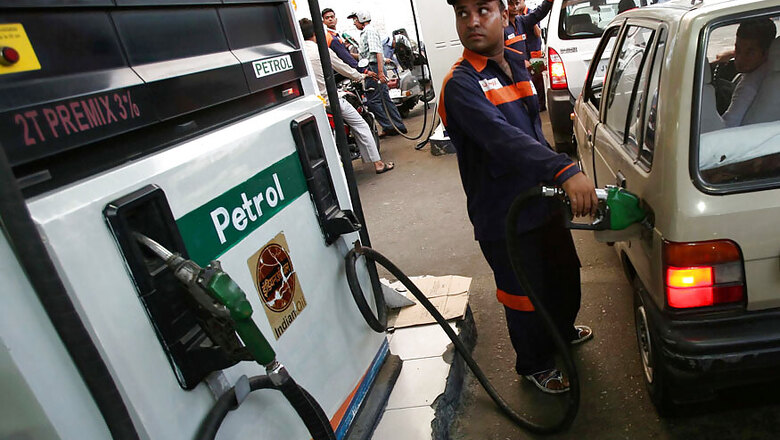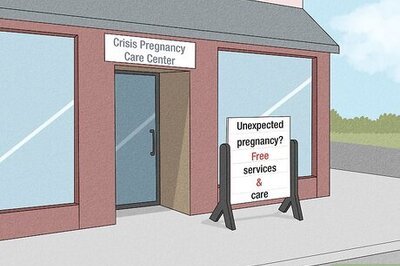
views
New Delhi: Calling for a cut in the cess on transport fuels, industry chamber ASSOCHAM said on Sunday that the consumer is getting restive about a three-year high in the petrol prices and feels the market pricing mechanism is being distorted by tax hikes on petrol and diesel.
"Consumers are getting restive about a three year high in the petrol and diesel prices because they feel the concept of market-determined rates was tampered with by frequent tax hikes when the crude oil prices fell steeply and are ruling at exactly half the level of $107 per barrel in May 2014, even after rising in the last three months," an ASSOCHAM release said in New Delhi.
"It is true that the crude oil has shot up by about 18 percent from $45.60 per barrel, taking the pump prices of petrol in Delhi (for instance) to Rs 70.39 per litre, from Rs 65.40 three months ago," it said.
Acknowledging that the increase in the retail prices is far less than hike in crude oil, ASSOCHAM said, however, that "the consumer is not willing to compare the crude prices of $45.60 in June versus $54 per barrel today" but "he/she would confront you with $107 per barrel of crude in May 2014 and the pump price of Rs 71.51 per litre on June 1, 2014."
"With $107 per barrel, the retail price of auto fuel was Rs 71.51 per litre, then how come it is about the same when the Indian basket of crude is trading at half that level at $53.83 per barrel, the consumers would ask," the statement said.
If they were solely market determined, retail prices should have been less than Rs 40 a litre, it added.
The Indian basket of imported crude oils gained nearly $3.50 a barrel during last week even as petrol prices in the country touched their highest levels since Prime Minister Narendra Modi assumed office three years ago, official data showed on Monday.
The Indian basket, comprising 73 percent sour-grade Dubai and Oman crudes, and the balance in sweet-grade Brent, closed trade on the weekend on September 8 at $53.63 per barrel. The oil basket had gained over a dollar on Monday to close at $51.34 for a barrel of 159 litres.
Meanwhile, under the daily revision of fuel prices, petrol in Mumbai on Monday cost Rs 79.41 a litre, breaching the level it last touched in August 2014. Petrol per litre on that day cost Rs 70.30 in Delhi, Rs 73.05 in Kolkata and Rs 72.87 in Chennai.
Petroleum products do not come under the Goods and Services Tax (GST) and prices vary at locations according to state taxes.
ASSOCHAM said that even though the pricing regime has been linked to market determined rates, a sharp hike in taxes in the form of excise and sales tax or VAT by the Centre and states have distorted the path of reforms.
"Consumers cannot be faulted because the reforms cannot be one way. If the exchequer got a windfall on drop in crude prices by additional taxes, the same must be reduced commensurately," ASSOCHAM Secretary General D.S Rawat said in the statement.
He said that while the government needs resources for building infrastructure and welfare schemes, over-dependence on petrol and diesel both by the Centre and the states would hamper the economic growth.
"The impact is already showing on the macro numbers. The inflation on account of petrol and diesel, year on year, in August 2017 was in excess of 24 per cent and 20 percent. This would dent the prospects of interest rates softening by the RBI at a time when the industry needs less expensive funds for investment and servicing over-leveraged balance sheets," he added.












Comments
0 comment